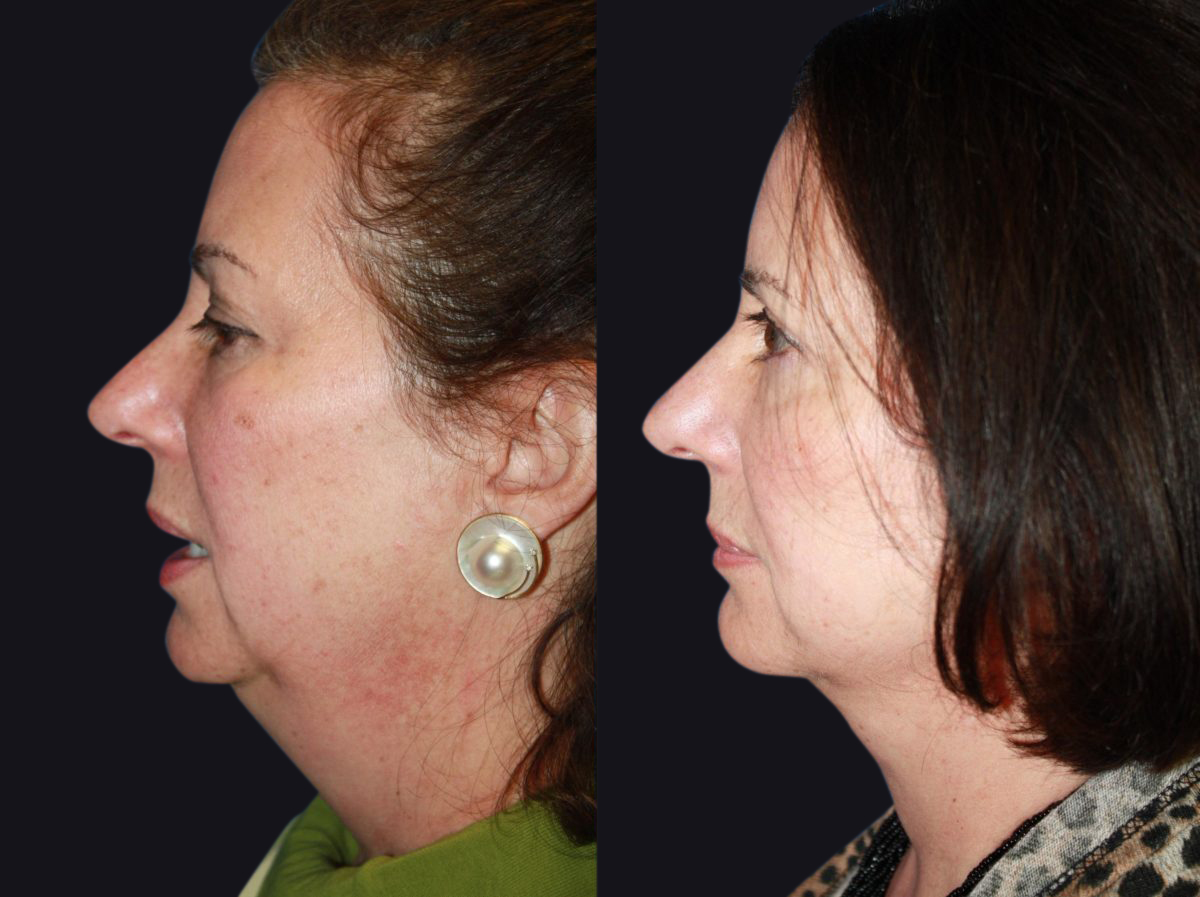
21 Sep 2023 | by Leonard Miller, MD, FACS, FRCS
Facial aging happens to everyone. With each birthday, we gain a bit more wisdom and a few more wrinkles. Genetics play a role in how fast the latter happens, but so do certain lifestyle choices such as:
- Weight gain/loss
- Smoking
- Time spent in the sun
- Nutrition
- Exercise
There are also factors outside of our control such as whether or not you live in a major city with a lot of pollution. Regardless of how healthful a life you lead, however, there will come a time when the reflection that you see in the mirror is no longer in synch with how youthful you feel on the inside. Some people are ok living with this discrepancy. For others, however, it makes them feel out of balance, and not as confident or comfortable in their skin as they’d like.
Facelift Can Restore Balance
A facelift is a wonderful procedure for restoring balance to not just your facial anatomy, but also this internal/external dichotomy. With time, a couple of things start to happen with your face. First, our tissues loose volume or plumpness. The reason that we refer to someone with a youthful looking face as having a “baby face” is because babies have round, full faces. Second, the tissues of the face start to droop or sag so that folds form around the mouth and lower face. “Jowling” is one of the primary reasons that patients come in to speak with me about a facelift.

This 1-2 facial aging punch is due to the fact that our bodies stop producing as much collagen and elastin as we get older. The former helps plump the skin and tissues while the latter allows them to “bounce back” after you laugh, for example. Thankfully, there are a number of effective non-surgical modalities that can stimulate your body to ramp up its production of these two anti-aging powerhouses. The question is: Will this be enough? Bottom line, it depends.
Customized Facelift
As with everything in plastic surgery, the right procedure for you is going to depend entirely on your individual anatomy and needs. I have been addressing facial aging for the entirety of my career. And one thing that I know for sure is that there is no one size fits all when it comes to facial rejuvenation. One of the things that is so exciting about the proliferation of non-surgical and surgical options today is that I have so many tools in my tool chest for creating the exact right facelift for you. These include improving skin tone and texture with high quality skin care, lasers therapies such as:
- Excel V
- PicoSure
- Genesis
- Pearl Fractional Laser
Radiofrequency (RF) procedures such as:
- Renuvion
- Fraxel
- ThermiTight
- EndyMed
And micro needling either on its own with the SkinPen, or in combination with RF with Profound. I will often combine one or more of the above to address the early signs of aging in younger patients. But I will also use these non-surgical modalities to prep the skin before performing a surgical facelift. Any surgery is like a painting. It’s only as good as the canvas upon which it rests. Getting your skin into tip top shape before considering any kind of surgical intervention is a must.
Fillers, Fat Grafting & Botox
Other things to consider with facial aging is where and how it exhibits on your face. Fillers and fat grafting will address volume loss in the mid-face/cheek area as well as plump up fine lines and wrinkles. And Botox will temporarily paralyze the underlying dynamic muscles thus smoothing out wrinkles and lines. But neither can address moderate to severe sagging in the skin. This is something that confuses many patients. Think of it like the drapery on a dress. If you try and smooth them out with volume, people will just think that you look pregnant. The only way to soften serious sagging is to lift and excise the excess skin with a facelift. But if you only perform the lift without also restoring volume, it can result in an unnatural appearance. Turning back the clock is about subtly addressing all of the components of facial aging so that you look like yourself, only better. I want people to ask where you went on vacation not who did your facelift.
Eyes & Neck Too?
In order to help ensure a natural looking result, I always take a comprehensive approach to my facelift procedures. This means that I assess a patient’s eyes and neck as these features work in conjunction with the rest of the face. The eyes, due to the sensitive nature of the skin surrounding them, are often one of the first features to show the early signs of aging. This can manifest as excess folds of skin in the upper lid that may make your eyes look “hooded” or an overly pronounced fat pad under the eyes. There are things that can be done non-surgically such as using certain fillers to smooth out the transition between the lower eyelid and the cheek and/or fill in the tear trough area to improve dark circles. Even a bit of filler on the outside corner of the brow can go a long way towards “lifting” and opening the upper eyelid. There is also a surgical blepharoplasty for the upper lid, lower lid or both.
In addition to the eyes, the neck is another one of those features that I always view as an extension of the lower face. Like the eyes, the neck is prone to the early signs of aging, particularly now that we are always looking down at ourselves on our phones. Many patients develop excess fat underneath their chin. Kybella is an injectable designed for exactly this issue. There is also liposuction. However, again, neither addresses loose skin. If a patient has reached the point of needing a facelift, I almost always add a neck lift. Otherwise, your result may look strange. And really, my goal is for you to look more youthful, but never “done”. It’s a fine line, but one that my years of experience allow me to walk well.
To find out more about a facelift with Dr. Leonard Miller at the Boston Center for Plastic Surgery, contact us today or call (617) 735- 8735 to schedule a consultation.
